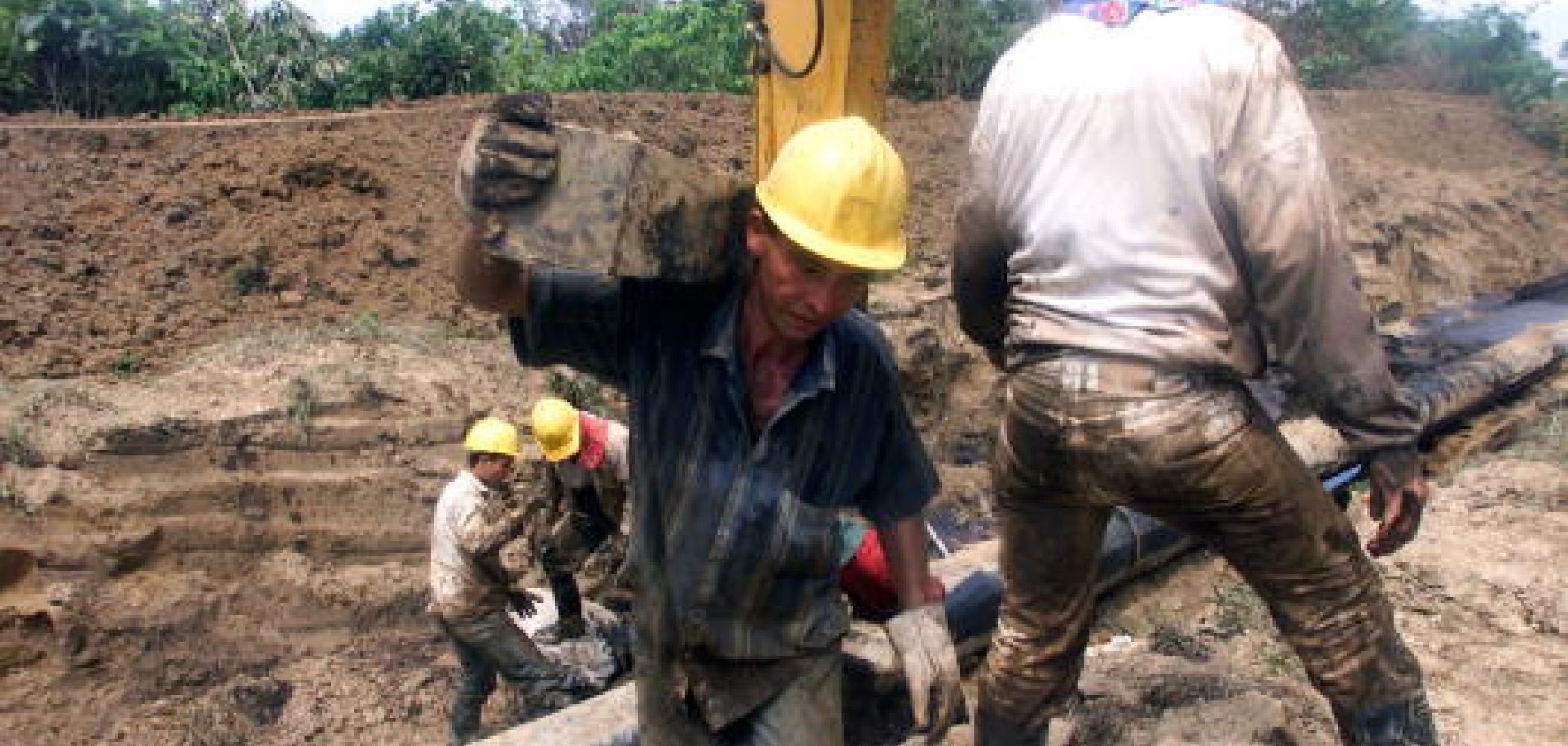ASSESSMENTS
Attacks on Colombia's Energy Infrastructure
Aug 13, 2012 | 11:00 GMT

Carlos Villalon/Getty Images
Summary
In the first half of 2012, Colombia registered 61 attacks against energy infrastructure by the Revolutionary Armed Forces of Colombia and the National Liberation Army, the country's two main rebel groups. This constitutes a threefold increase when compared to the same period in 2011. Attacks against energy personnel and infrastructure continued throughout July, including two attacks on the Cano Limon-Covenas Pipeline, two attacks on the Transandino Pipeline, two kidnappings and two assassinations. Unlike the larger-scale coordinated attacks that were common in the 1990s, most of the pipeline attacks over the last several years have involved simple improvised explosive devices rupturing small sections of the pipeline.
This uptick in violence could negatively impact the future of Colombia's energy sector, especially given that Ronda Colombia 2012 — a major round of energy concessions — is currently under way and due to close in November. Despite an increase in attacks, inquiries and proposals for Ronda Colombia 2012 continue to grow. The National Hydrocarbons Agency announced that 68 companies have already solicited information on 109 blocks. Evidently the attacks have not deterred foreign direct investment.
Looking ahead, reserve and production data suggest that if Colombia wants to continue riding the energy wave, it must expand operations outside of traditional areas of production such as the Eastern Llanos Basin and the Upper and Middle Magdalena basins. In terms of proven onshore reserves, 29 percent of Colombia's oil reserves and 47 percent of its natural gas reserves are located in the unstable basins of Choco, Tumaco, Caguan-Putumayo, Cauca-Patia, Vaupes-Amazonas and Sinu-San Jacinto. These five basins currently account for just 4 percent of total crude production and none of the natural gas production due to their endemic insecurity. As companies move into territory traditionally controlled by rebel or paramilitary groups, energy infrastructure will become even more vulnerable to attacks, and extortion opportunities will continue to rise.
Subscribe Now
SubscribeAlready have an account?
